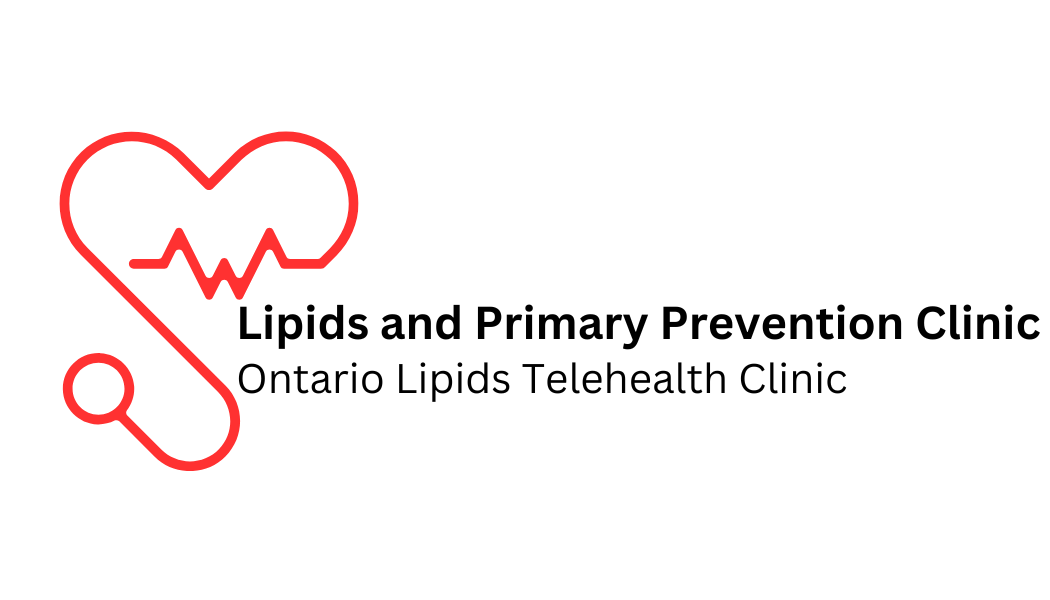Are you a patient looking for help treating your conditions?
At LAPP Clinic, we specialize in treating lipid disorders and preventing cardiovascular risks through personalized, telehealth based care. With a referral from your family doctor, walk-in clinic physician, or specialist, you can access timely, expert care tailored to your unique needs. We’ll work with you to create a treatment plan that improves your heart health and reduces your risk of heart disease, all from the comfort of your home. Let us guide you on your journey to better health, contact us today to get started!
How to become a patient:
Family Doctor Referral: Ask your family doctor to refer you to our clinic for lipid and cardiovascular risk management.
Walk-In Clinic Physician Referral: You can obtain a referral from a walk-in clinic physician for telehealth services at LAPP Clinic.
Specialist Referral: If you’re under the care of a specialist, they can provide a referral for our services.
Nurse Practitioner Referral: Nurse practitioners are able to refer you to our clinic for specialized care.
Hypercholesterolemia (High Cholesterol)
What is Cholesterol?
Cholesterol is a waxy substance found in the blood, necessary for building healthy cells. However, too much cholesterol can increase the risk of heart disease.
Why is High Cholesterol Concerning?
Excess cholesterol can form plaque in the arteries, which narrows them, making it harder for blood to flow. This condition, known as atherosclerosis, can lead to heart attacks and strokes.
What are the Types of Cholesterol?
- LDL (Low-Density Lipoprotein) – “Bad” Cholesterol. LDL carries cholesterol from the liver to cells. However, if there is too much LDL, it can deposit excess cholesterol in the walls of arteries, leading to plaque buildup. Risk: High levels of LDL increase the risk of atherosclerosis (narrowed, hardened arteries) and heart disease.
- HDL (High-Density Lipoprotein) – “Good” Cholesterol. HDL helps remove excess cholesterol from the bloodstream and transport it back to the liver for disposal. Benefit: Higher levels of HDL are linked with a lower risk of heart disease because HDL helps keep arteries clear.
- VLDL (Very Low-Density Lipoprotein). VLDL mainly carries triglycerides (fats) from the liver to tissues for energy or storage. Risk: Like LDL, VLDL can contribute to plaque formation in the arteries. VLDL also plays a role in high triglyceride levels, which can be harmful in excess.
- Total Cholesterol: Total cholesterol is a combined measure of LDL, HDL, and other lipid components in the blood. It provides a general overview but doesn’t distinguish between “good” and “bad” cholesterol. Total cholesterol levels can help assess overall cholesterol health, but the breakdown of LDL and HDL provides a more complete picture of heart disease risk.
- Non-HDL Cholesterol: Non-HDL cholesterol is the total cholesterol minus HDL. It includes all cholesterol that has the potential to form plaques
What are Some Risk Factors for High Cholesterol?
- Unhealthy diet (especially high in saturated fats, trans fats, and processed sugars)
- Lack of physical activity
- Smoking and excessive alcohol intake
- Genetic predisposition
What are the Symptoms of High Cholesterol?
High cholesterol usually doesn’t have symptoms, which is why routine blood tests are essential.
What are the Treatment and Prevention Strategies for High Cholesterol?
- Dietary Changes: Emphasize a heart-healthy diet with fruits, vegetables, whole grains, and lean proteins. Reduce saturated and trans fats.
- Exercise: Aim for at least 150 minutes of moderate aerobic exercise per week.
- Medications: Statins and other medications can help lower cholesterol for those who need it.
- Lifestyle Adjustments: Quitting smoking and limiting alcohol.
Hypertriglyceridemia (High Triglycerides)
What are Triglycerides?
Triglycerides are fats in the blood that the body uses for energy. Excess calories from food are converted into triglycerides and stored in fat cells.
Why are High Triglycerides Concerning?
High triglyceride levels can increase the risk of cardiovascular disease and pancreatitis, especially when combined with other conditions like diabetes.
What are Some Causes of High Triglycerides?
- High-sugar and high-fat diets, particularly with added sugars
- Excessive alcohol intake
- Obesity and lack of physical activity
- Uncontrolled diabetes and certain medications
How do you Manage High Triglycerides?
- Diet: Focus on healthy fats (like those from nuts, seeds, and fish) and reduce intake of refined carbs and sugary foods.
- Weight Loss (if you have increased BMI): Losing 5-10% of body weight can significantly lower triglycerides.
- Physical Activity: Regular exercise improves fat metabolism.
- Alcohol: Limit or avoid alcohol, as it raises triglyceride levels.
- Medications: In some cases, medications like fibrates, niacin, or omega-3 fatty acids may be recommended.
